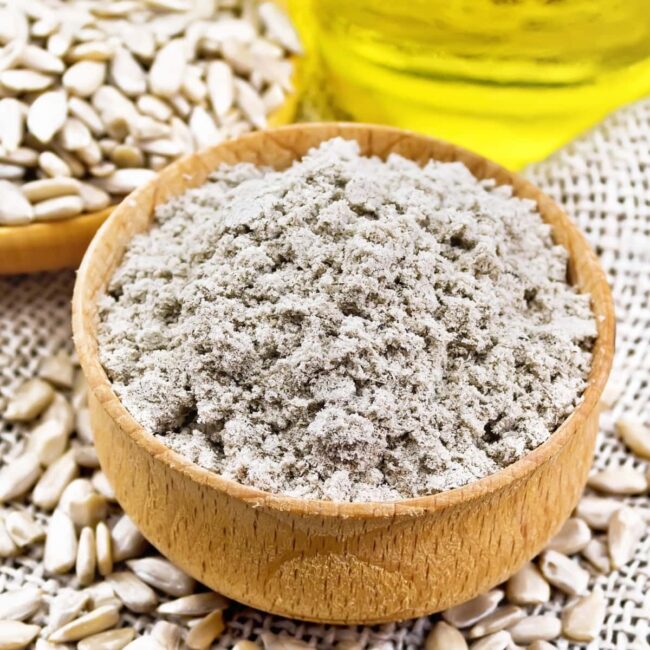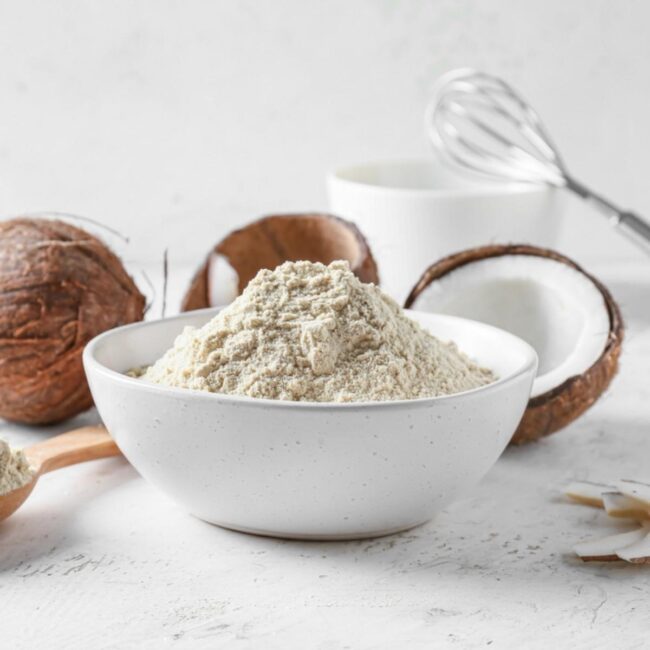4 Best Almond Flour Substitutes for Any Recipe
Almond flour substitutes provide excellent alternatives for gluten-free and low-carb baking.
Various nut-based, grain-based, and starchy flours can deliver similar textures and flavors.
Some options enhance the density of baked goods, while others create a lighter crumb.
With the right swap, recipes stay just as delicious and versatile.
What to Know About Almond Flour
Almond flour stands out as a gluten-free alternative with a rich, nutty flavor and impressive nutritional benefits.
Ground from blanched almonds, this flour boasts a fine texture that lends itself well to various baking needs.
High fiber content contributes not only to healthier recipes but also assists in achieving the right consistency for your favorite dishes.
While almond extract can be used for an almond flavor boost without the flour's texture, it’s essential to remember that this ingredient is potent and should be used sparingly.
Those with nut allergies must consider other options like coconut or rice flour since almond products can pose risks for sensitive individuals.
Alternatives to Almond Flour
Almond flour serves as a popular ingredient in many recipes. Options like coconut flour, oat flour, and hazelnut flour provide excellent substitutes for those seeking variety or needing to avoid nuts.
All-Purpose Flour
Substituting almond flour with all-purpose flour opens up new avenues in your cooking adventures.
This versatile option comes from a mixture of hard and soft wheat, providing a milder flavor that blends seamlessly into various dishes.
The straightforward 1:1 ratio makes the switch easy, yet you may find it rewarding to tweak this based on personal taste and recipe requirements as you gain confidence.
Keep an eye on the texture; recipes needing moisture or structure might benefit from extra eggs or other binding agents due to gluten's presence in all-purpose flour.
Consider adding spices or flavors if the nutty essence of almond flour is missed; small adjustments can lead to delightful outcomes without compromising your dish’s integrity.
Nut Flour
Exploring alternatives to almond flour opens up a world of exciting options.
Cashew flour, with its subtly sweet flavor and fine texture, can seamlessly blend into your favorite recipes without much adjustment.
For those who enjoy a richer taste, macadamia flour introduces a buttery note that enhances baked goods beautifully; just remember to use slightly less than the original amount called for.
Pecan flour offers a deeper sweetness that complements various dishes nicely but does come with its own distinct flavor profile worth considering.
Hazelnut flour adds an intriguing twist with its bold richness; it may change the overall taste but can elevate your culinary creations in unexpected ways.
Seed Flour
Finding an almond flour substitute opens up a world of exciting options.
Sunflower seed flour shines with its mild, nutty flavor and is easy to make by grinding raw sunflower seeds.
Flaxseed flour brings a rich, earthy taste that enhances the texture of denser baked goods like pancakes and breads while offering heart-healthy omega-3s.
Pumpkin seed flour adds a hint of sweetness with its vibrant green hue and is packed with vital nutrients such as iron and magnesium.
Trying out these alternatives can lead to delicious discoveries in your kitchen while accommodating various dietary needs!
Other Flours
Exploring alternatives to almond flour opens up a world of culinary creativity.
Coconut flour, derived from dried coconut meat, adds a hint of sweetness and pairs beautifully with various flavors.
Oat flour provides a gentle taste profile and serves as an excellent whole-grain option, perfect for those looking for gluten-free choices without compromising on texture.
Rice flour stands out with its lightness and versatility, making it easy to swap in recipes at a 1:1 ratio with almond flour.
For something different, cassava or tapioca flours offer unique textures that can enhance your baked goods while accommodating dietary restrictions effectively.
Cooking and Baking with Almond Flour
Almond flour opens up a world of culinary creativity with its rich, nutty flavor and moist texture.
This ingredient shines in baked goods, especially French macarons, where it creates a light and airy finish that is simply irresistible.
For those avoiding gluten, almond flour serves as an excellent substitute in various recipes without compromising taste or quality.
Dieters appreciate its low carbohydrate count; using almond flour makes it easier to whip up satisfying treats while sticking to health goals.
Adjustments may be necessary when substituting for wheat flour due to its density and unique browning properties. Keeping an eye on your creations ensures they come out just right every time.
Nutritional Facts About Almond Flour
Almond flour offers an appealing alternative to traditional wheat flour, especially for those seeking nutritious options.
Packed with plant-based protein, it provides about 6 grams in just a 1/4 cup serving, fueling your body effectively.
Healthy fats play a significant role too; this flour contains around 14 grams of beneficial fats that support heart health and combat inflammation.
With its impressive magnesium content of roughly 40mg per serving, almond flour contributes to muscle function and blood sugar regulation as well.
Low in carbohydrates yet rich in calcium and vitamin E, this versatile ingredient stands out as an excellent choice for various dietary needs while promoting overall wellness.
Health Concerns with Almond Flour
Almond flour is a fantastic ingredient for various dietary needs, especially for those avoiding gluten.
Its low carbohydrate content makes it appealing for keto and paleo enthusiasts.
Nutritionally rich in monounsaturated fats, almond flour supports heart health while helping maintain stable blood pressure and cholesterol levels.
Careful consideration is necessary if allergies are a concern; nut allergies can pose serious risks with almond products.
Evaluating your dietary preferences ensures that this nutritious option fits well into your cooking routine without compromising health goals or safety concerns.
Choosing Almond Flour Substitutes
Choosing an almond flour substitute requires careful thought about various elements to achieve the best results.
Carbohydrate levels play a significant role, especially for those on low-carb diets; coconut flour stands out as another low-carb option.
Nutritional benefits matter too, so exploring alternatives like quinoa or buckwheat can keep your dish nutrient-rich and gluten-free.
Binding properties vary among flours, often necessitating additional agents to maintain structure and cohesion in your recipe.
Texture and taste will also shift with different substitutes; a bit of experimentation can help you discover which options harmonize best with your culinary creations without overpowering them.





